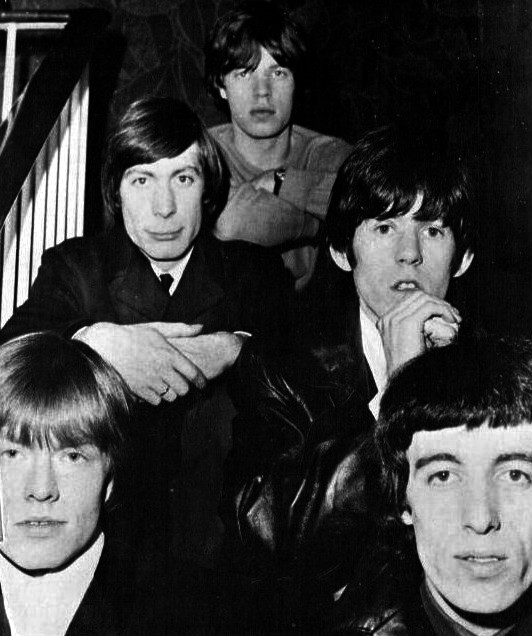The Lasting Influence of the Rolling Stones

After 50 years, the Rolling Stones continue to influence and inspire.

Related Links |
During their fifty years as a band, the Rolling Stones have released twenty-nine studio albums, eighteen live albums, numerous videos, concert films and compilations. The band was inducted into the UK Music Hall of Fame in 2004 and the Rock and Roll Hall of Fame in 1989. They were ranked fourth on Rolling Stone magazine's 100 Greatest Artists of All Time. As of 2014, their albums had sold an estimated 250 million. Well known for their energetic live performances and their wild reputations offstage, perhaps the band's most impressive achievement was that after fifty years they were still going strong with no end in sight.
Blending Styles
When the Rolling Stones first hit the scene in the 1960s, they received more attention for their physical appearance, their long hair, for example, than for their music. However, after releasing several covers and, later, their own original music, the band got attention for blending blues and rock into their own signature sound. They brought a simpler form of blues to the forefront of pop culture, merging it with rock and roll. Even the band name shined a spotlight on the blues genre. The band took its name from the Muddy Waters song "Rollin' Stone."
Mick Jagger and Keith Richards brought the influences of Muddy Waters, Jimmy Reed and other blues artists to the Rolling Stones. Band member Charlie Watts was primarily a jazz drummer at the time he joined the band. Brian Jones had been into a more sophisticated jump blues style such as the work of T-Bone Walker. Richards and Jagger turned Jones onto the simpler styles of artists such as Chuck Berry.
Even though the band was heavily influenced by blues, the Rolling Stones also blended other genres into their own sound. Over the years, their songs used a variety of musical styles such as country, folk, dance and reggae. Early on, Jones used the sitar and slide guitar to experiment with the band's sound.
Mick
Much has been written about Mick Jagger's stage moves and the spell those moves have cast over audiences. Perhaps writer Philip Norman summed it up best in 1984 when he compared Jagger to Elvis, "Presley, while he made girls scream, did not have Jagger's ability to make men feel uncomfortable." In fact, Jagger's performance style was so unique and striking scholars used it in gender and sexuality studies. Jagger's singing voice, often described by music critics as unexceptional, paved the way for more unique voices to be heard. "The acceptance of Jagger's voice on pop radio was a turning point in rock & roll. He broke open the door for everyone else. Suddenly Eric Burdon and Van Morrison weren't so weird – even Bob Dylan," wrote musician Steven Van Zandt in a Rolling Stone magazine tribute to the band.
Jagger's influence on other frontmen has crossed multiple generations. While looking back on playing with bands early in his career, David Bowie said, "I used to dream of being their Mick Jagger." Rolling Stone magazine placed Jagger at number 16 on its list of 100 Greatest Singers. In a tribute to Jagger, the magazine lists Steven Tyler, Iggy Pop, Lenny Kravitz and The White Stripes' Jack White as some of the musicians who have been influenced by Jagger.
Keith
Keith Richards became famous for his no frills, unpretentious guitar style, a blend of blues and rock. He was ranked fourth on Rolling Stone's list of 100 Best Guitarists. The magazine said that Richards has "rock's greatest single body of (guitar) riffs." Fourteen of the songs he co-wrote with Jagger made Rolling Stone's 500 Greatest Songs of All Time list.
Richards has also become known for his notorious partying, history of drug use, rock star swagger and near-death appearance. His rugged appearance and brazen style was used by Johnny Depp when Depp famously based his Pirates of the Caribbean character Captain Jack Sparrow on both Richards and the cartoon character Pepé Le Pew. In 2007 and 2011, Richards joined Depp on screen in two Pirates of the Caribbean films, playing Depp's on screen father, Captain Teague. Richards also appeared, in cartoon form, on The Simpsons in 2002. In 2010, Richards released his highly anticipated memoir, My Life, which quickly became a New York Times best seller and received rave reviews.
As the Rolling Stones celebrated their fiftieth anniversary, their influence could be seen in everyone from fellow veteran acts such as Aerosmith and Iggy Pop to more recent bands like the White Stripes. One thing was for certain, long after the Rolling Stones play their last show, their legacy would live on through the music, books and concert films as well as in their influence on current and future rock bands.








